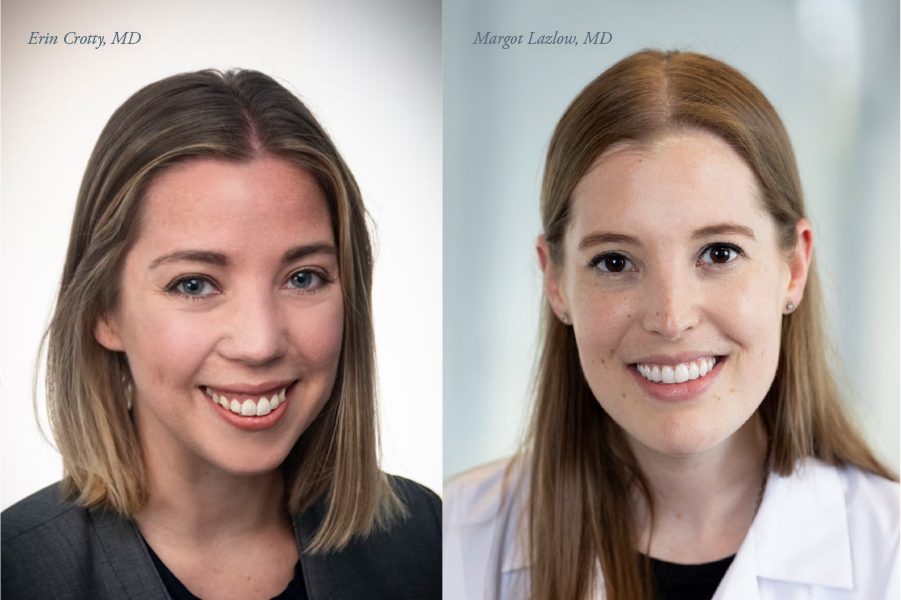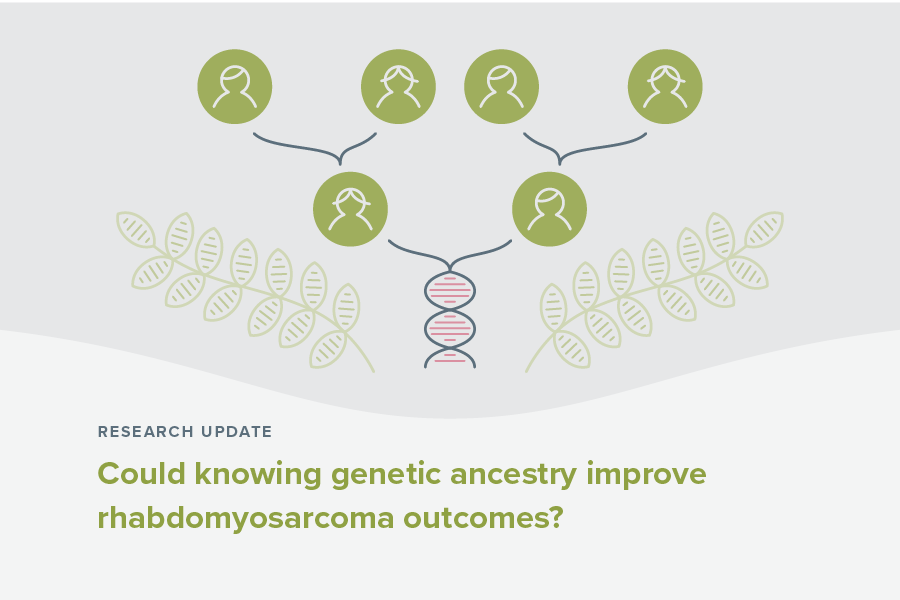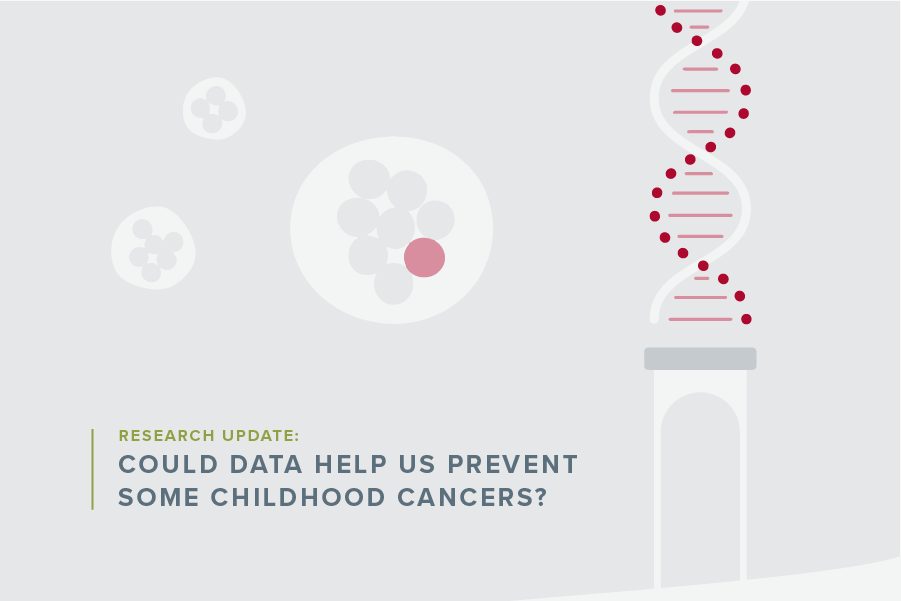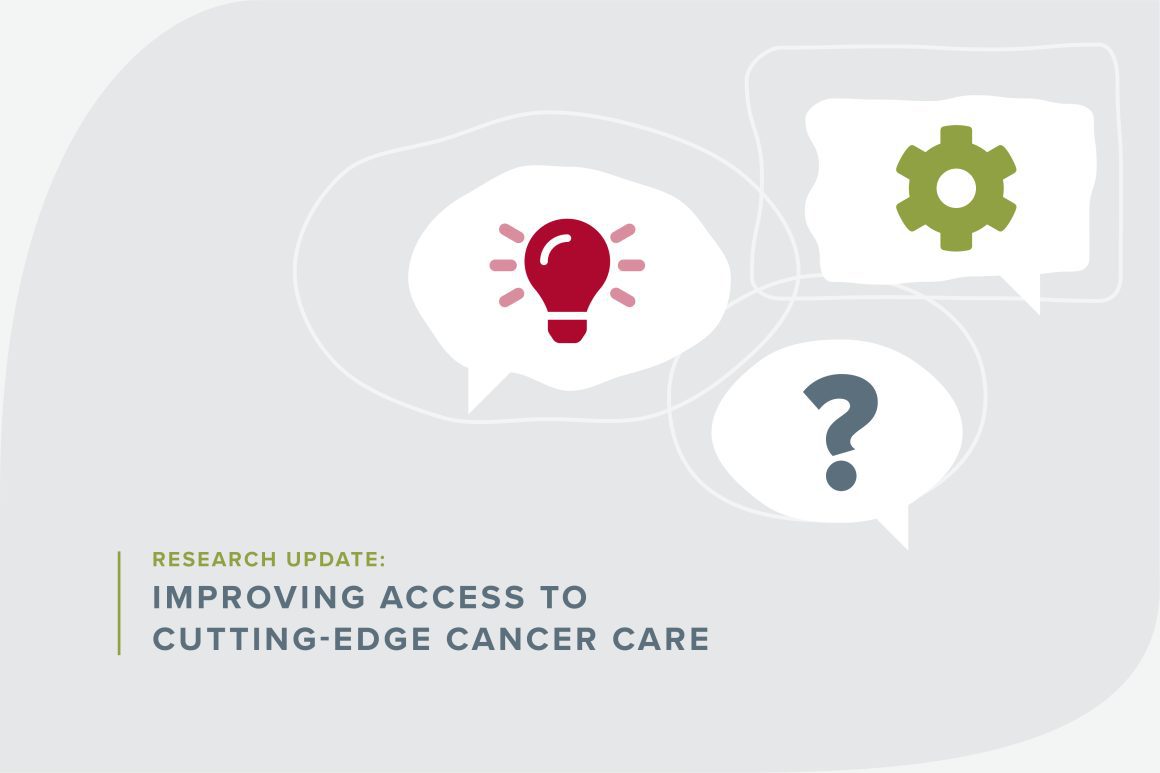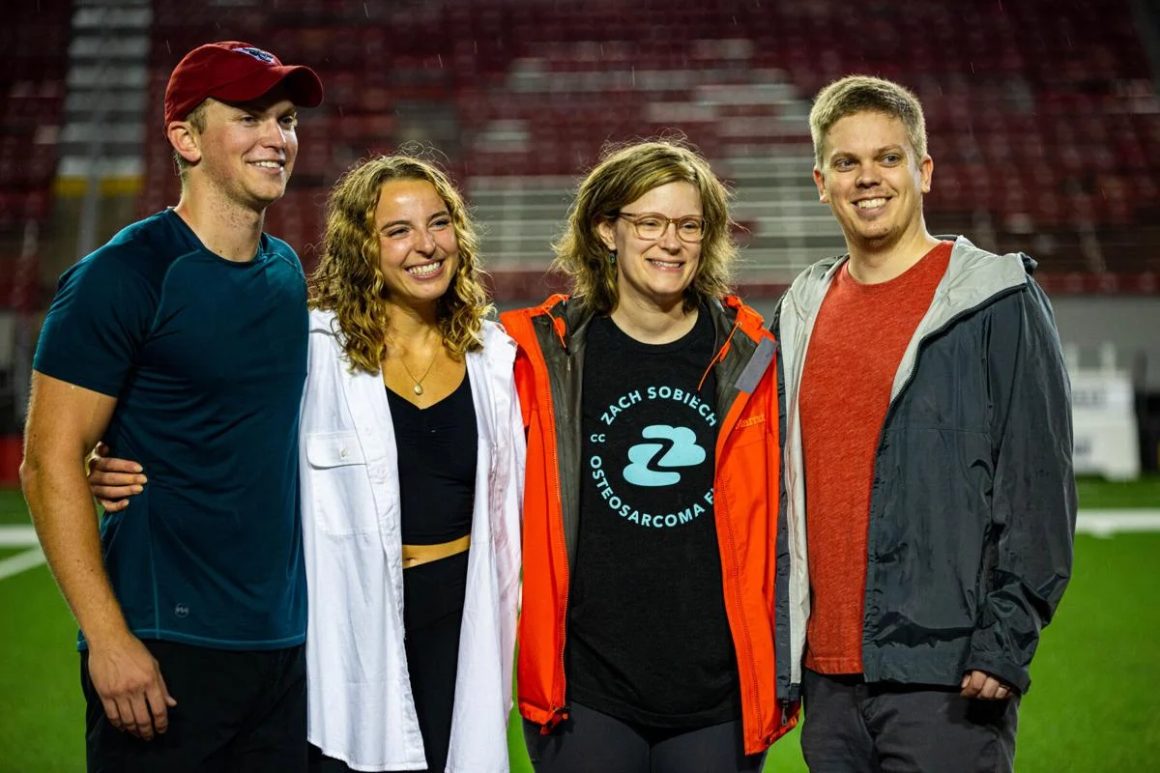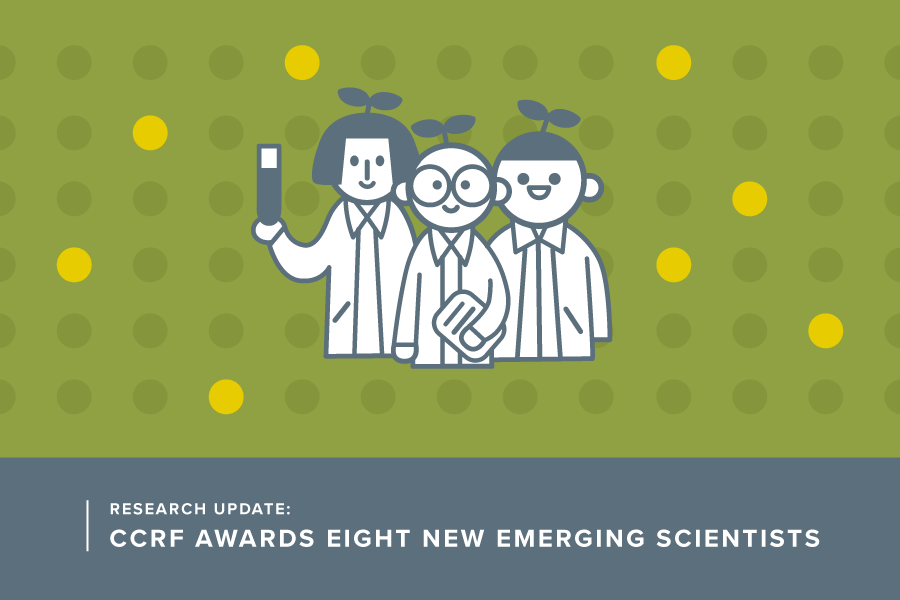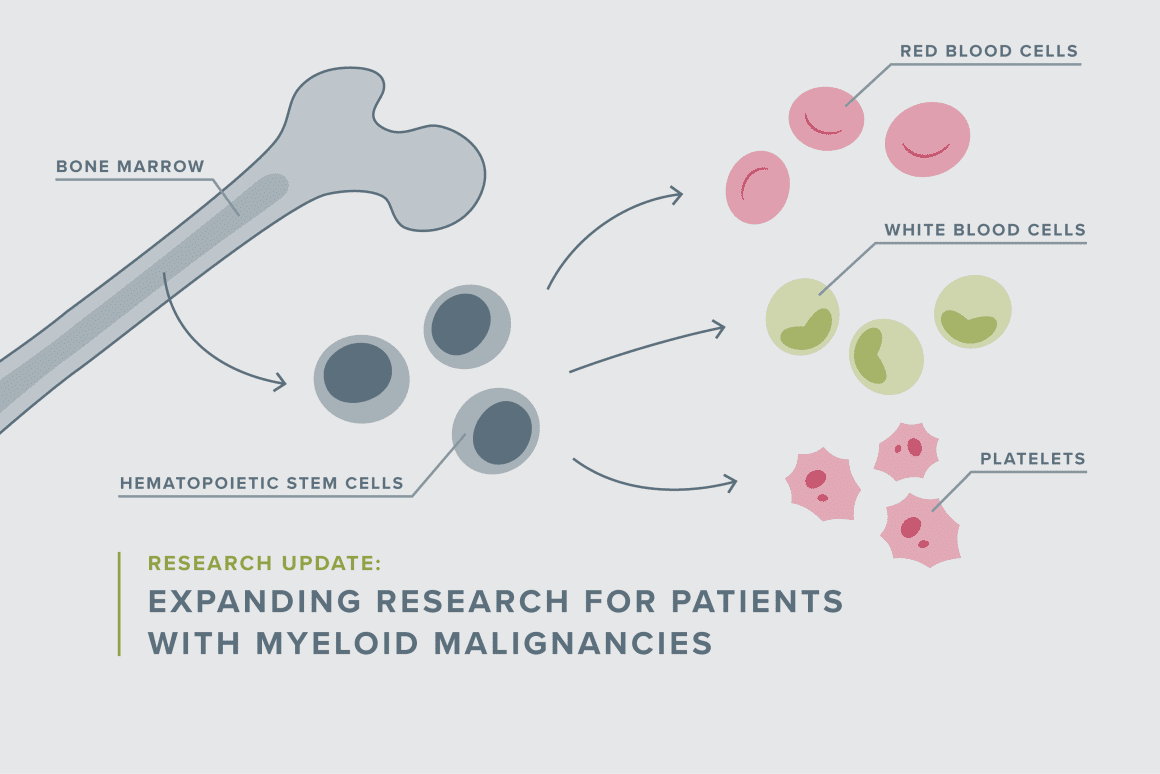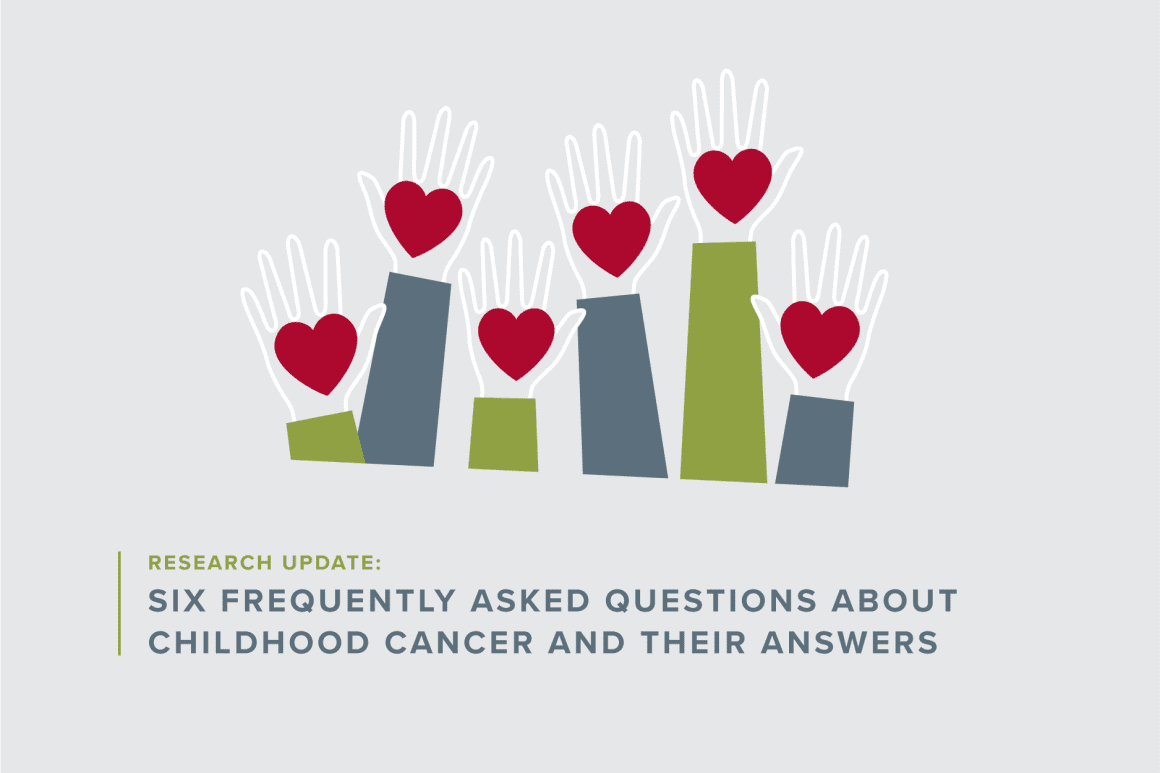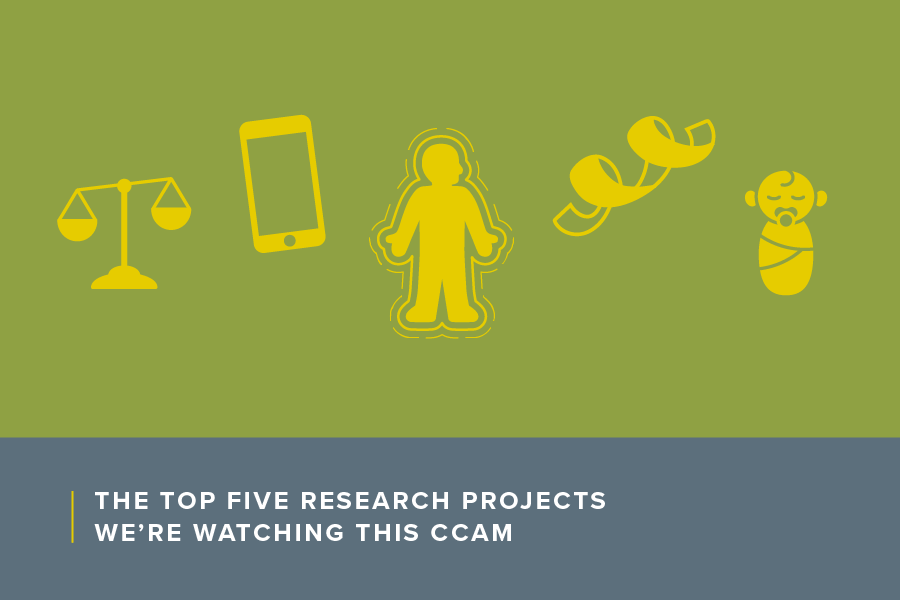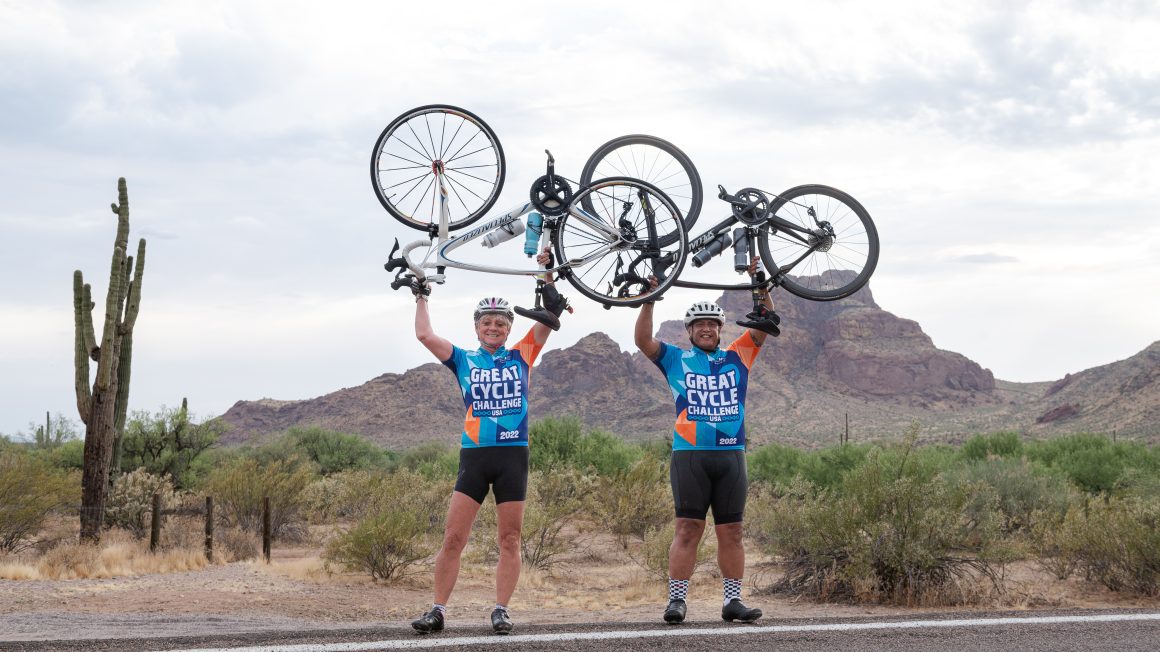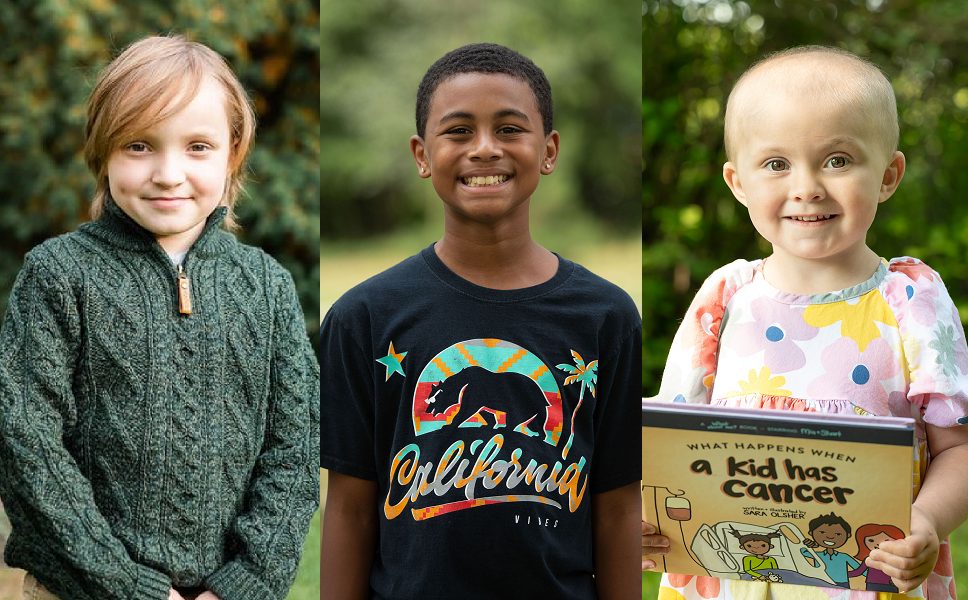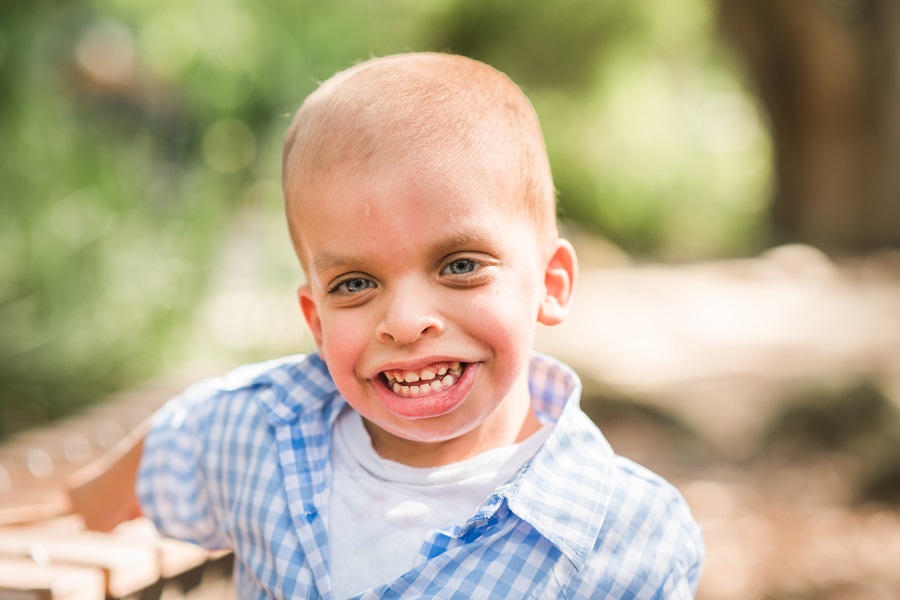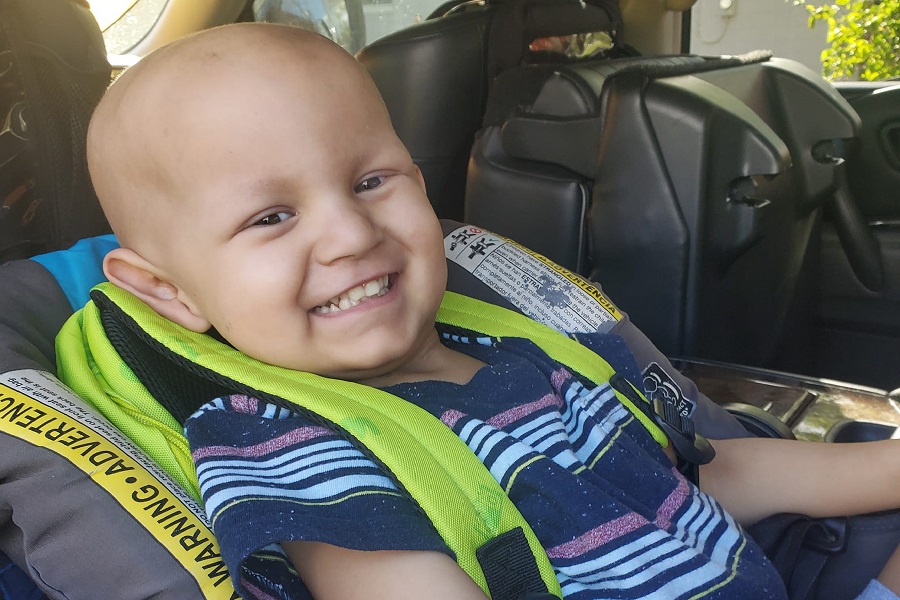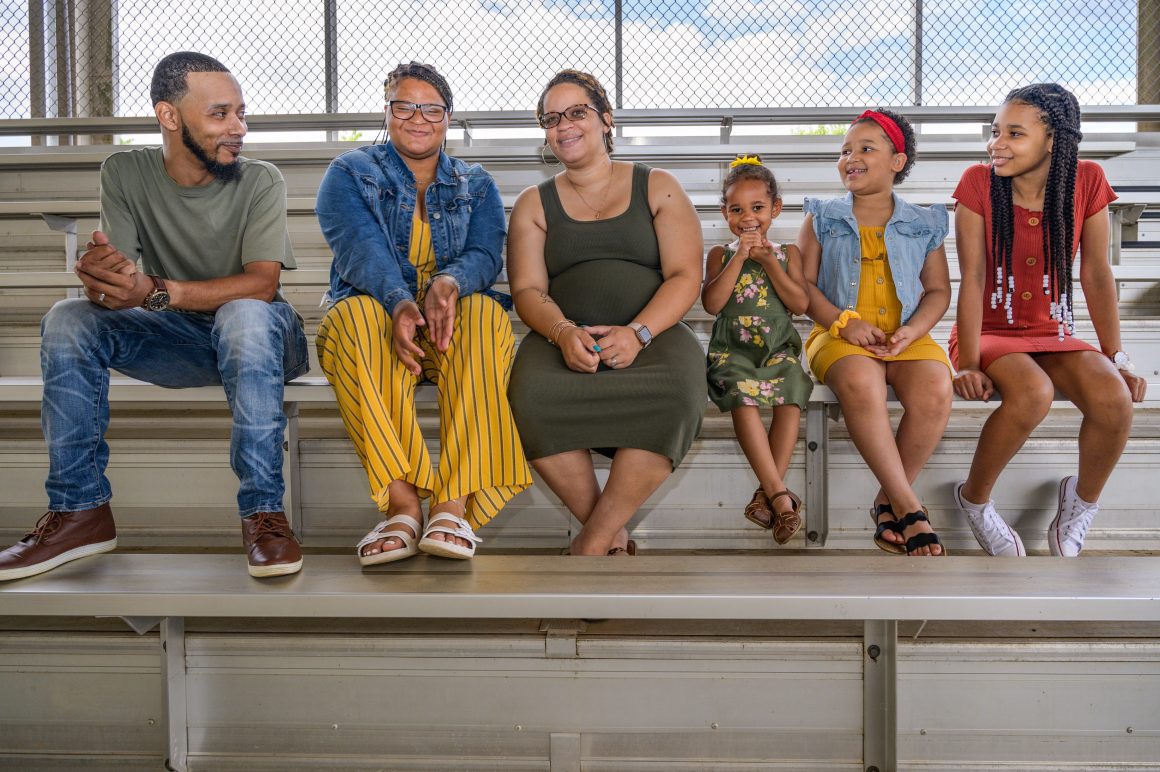Drs. Erin Crotty and Margot Lazow were motivated by their young, resilient patients to spend their careers studying some of the most difficult-to-treat and deadly cancers: brain tumors.
Could knowing genetic ancestry improve rhabdomyosarcoma outcomes?
Unlike some other childhood cancers, the outlook for RMS patients has not improved in recent years: five-year survival rates are less than 70% and fall to 30% for kids whose cancer has metastasized. African American children with RMS face a 16% worse survival rate than their non-Hispanic white peers.
Could data help us prevent some childhood cancers?
Thanks to donations from supporters like you, the Childhood Cancer & Leukemia International Consortium (CLIC; www.clic.ngo) is ushering in a new era of childhood cancer research.
Improving access to cutting-edge cancer care
Growing up as the child of immigrants, Jenny Ruiz, MD, regularly went to the doctor’s office with her grandfather, a kidney transplant patient who spoke limited English. “Because of our socioeconomic and cultural background, he depended on his grandchildren to take him to his appointments and who often ended up interpreting for him,” she recalled. “So that was my introduction to medicine when I was 16 or 17. I saw a lot of things that needed to be improved, and I felt that I could take a role in making those improvements for future patients.”
Standing Up Against Childhood Cancer
Childhood Cancer Awareness Month (CCAM) is recognized every September by childhood cancer organizations around the world. The goal of CCAM is to increase awareness and raise funds for childhood cancer research. This year, Children’s Cancer Research Fund (CCRF) raised awareness with the theme “it’s all of us against childhood cancer”. We’d like to highlight some of the fundraisers who raised money and awareness this CCAM. …
CCRF Awards Eight New Emerging Scientists
Through a selective granting process, Children’s Cancer Research Fund (CCRF) recently awarded these eight promising scientists the Emerging Scientist Award, each worth $100,000, to pursue their research.
Expanding research for kids with myeloid malignancies
Dr. Jessica Pollard is determined to solve a puzzle: myelodysplastic syndrome (MDS), a bone marrow disorder that affects the development of healthy blood cells. It can occur because of a genetic disposition or develop after chemotherapy. “MDS is a condition that’s very rare in kids, and it’s associated with poor prognosis,” Pollard said. “We don’t know how best to treat it, and treating it just like AML [acute myeloid leukemia] is probably not the right approach.”
Six frequently asked questions about childhood cancer and their answers
What causes childhood cancer? In children, the most common cause of cancer is randomly acquired DNA mutation, meaning childhood cancer is a disease of unfortunate random chance. Unlike adult cancers, childhood cancers aren’t caused by any behavioral or environmental factors (like smoking, overexposure to the sun or being exposed to toxic chemicals). In fact, there are some childhood cancers that develop before the child is …
The Top Five Research Projects We’re Watching This Childhood Cancer Awareness Month
Childhood cancer is a big problem to solve – there are more than 12 types and more than 100 different subtypes of childhood cancer.
This means when it comes to solving the problem of childhood cancer – it takes all of us. It takes childhood cancer families, researchers, doctors, care teams, and communities to take steps towards better, safer cancer treatments for kids.
And thanks to you, we’re taking those steps. This Childhood Cancer Awareness Month, we’re celebrating these five research projects you helped us fund in 2022.
Great Cycle Challenge – Riding for Antonio
When Jeff and Kelly’s son, Antonio, was diagnosed with leukemia, they felt helpless and alone in their fear for the future.
There is no “typical” childhood cancer experience
Every cancer parent remembers the moment they received the lifechanging news: “Your child has cancer.” But after that critical moment, no childhood cancer story is the same. We’ve gathered a list of some of the ways the childhood cancer experience can differ – due to age, race, family support, socioeconomic status and more. There is truly no “typical” childhood cancer experience, but the more we …
Childhood Cancer Facts
Childhood Cancer Facts We’ve gathered answers to your most frequently asked questions about childhood cancer, including statistics, resources and more.How common is childhood cancer? About 1 in 285 children will develop cancer before the age of 20. How many children are diagnosed with cancer each day? 47 children are diagnosed with cancer every day in the U.S. How many types of childhood cancer are there? …
Adan’s Story – Costello Syndrome and Cancer
Four-year-old Adan is a chef in the making – he loves his play kitchen, and one of his favorite activities is taking pretend food and making his parents and older brother Sammy “eat” it. Adan was born with Costello syndrome, a genetic condition caused by a mutation in the HRAS gene which, among other things, means he can only say a few words – but …
CCRF’s new award aims to close gaps in childhood cancer research and outcomes
Through a new partnership with the Diversity and Health Disparities Committee of the Children’s Oncology Group (COG), Children’s Cancer Research Fund will award young investigators the funds to pursue research in childhood cancer disparities, to better understand why children of color experiencing cancer have worse outcomes than white children.
Bryce’s Story – Born a Fighter
Little Bryce was a perfectly healthy 2-year-old until, out of nowhere, he had a seizure on the morning of July 23, 2021. Bryce wasn’t vocally responding that morning which was very unusual. His older sister heard him making a choking sound and got her mom immediately. “It looked like he was drowning – except there was no water nearby,” said Mary, Bryce’s mom. “Bryce wouldn’t …
Cell, gene and immunotherapies (CGI)
Help fund the future of childhood cancer treatment Rider’s cancer experience was not easy – months of harsh chemotherapy kept him exhausted and in the hospital, unsure if he’d have to learn to walk again. But future treatments don’t have to be this way. Cell, gene and immunotherapies (CGI) could make treatments for childhood cancer more effective, easier to tolerate and less likely to cause …
Caring for childhood cancer survivors after treatment
Childhood cancer leaves a lasting impact on children and families. Even after treatment ends, long-term effects of cancer treatment may pose challenges for survivors. Children and young adults, along with their families, may experience significant changes to their lifestyle. Instead of this being a time to go back to life as it used to be, it may be a time of continued adjustment, as you …
Your Impact
Your Impact Your support truly has an impact on children fighting cancer. In fact, for every dollar you donate to Children’s Cancer Research Fund, researchers who receive our grants are able to secure an average of $18 in additional funding from the government and other sources – meaning your donation is an investment that grows over time to improve the lives of kids fighting cancer.Donate …

